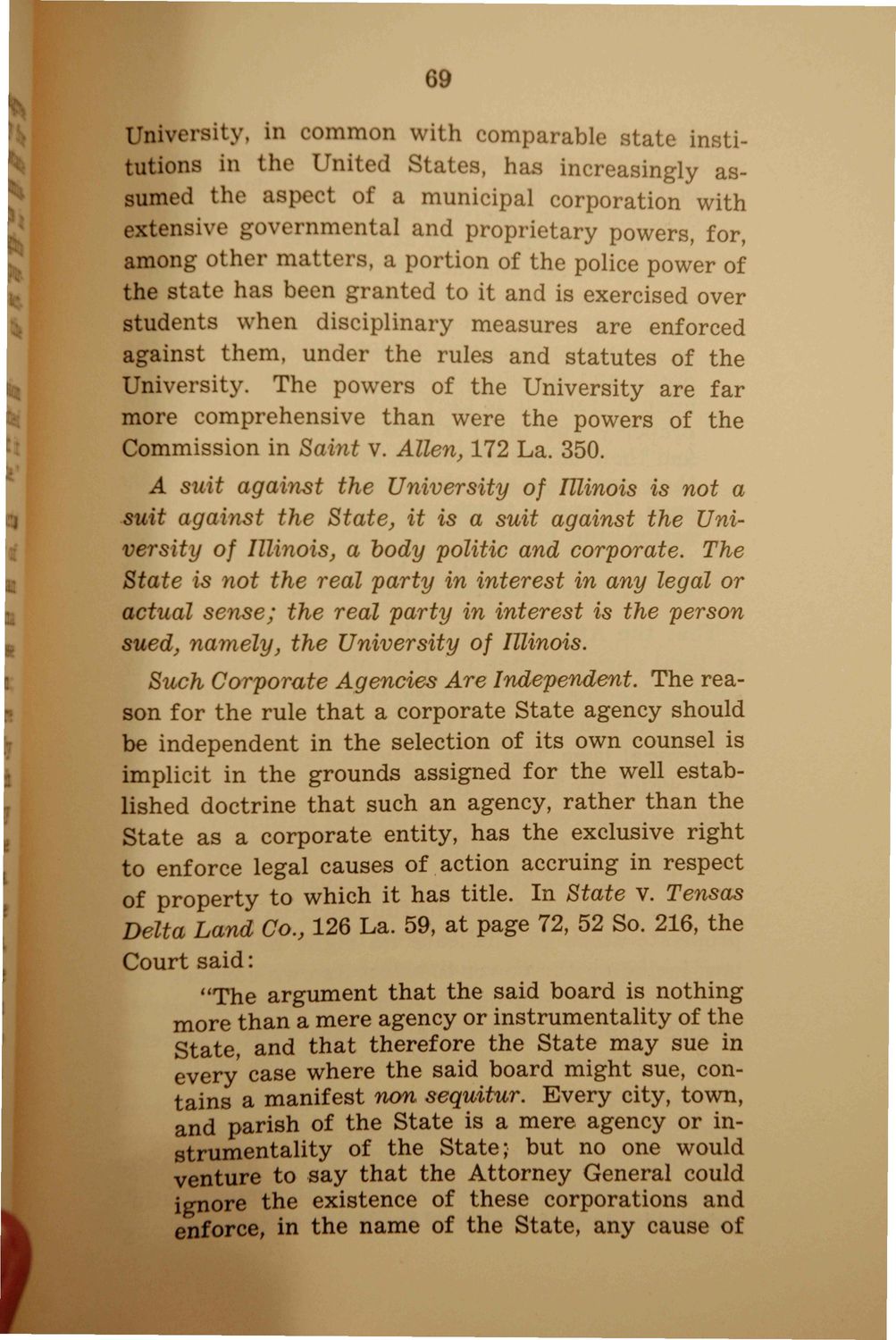| |
| |
Caption: Booklet - UI Charter of Freedom (1942)
This is a reduced-resolution page image for fast online browsing.

EXTRACTED TEXT FROM PAGE:
G9 University, in common with comparable state institutions in the United States, has increasingly assumed the aspect of a municipal corporation with extensive governmental and proprietary powers, for, among other matters, a portion of the police power of the state has been granted to it and is exercised over students when disciplinary measures are enforced against them, under the rules and statutes of the University. The powers of the University are far more comprehensive than were the powers of the Commission in Saint v. Allen, 172 La. 350. A suit against the University of Illinois is not a suit against the State, it is a suit against the University of Illinois, a body politic and corporate. The State is not the real party in interest in any legal or actual sense; the real party in interest is the person sued, namely, the University of Illinois. Such Corporate Agencies Are Independent. The reason for the rule that a corporate State agency should be independent in the selection of its own counsel is implicit in the grounds assigned for the well established doctrine that such an agency, rather than the State as a corporate entity, has the exclusive right to enforce legal causes of action accruing in respect of property to which it has title. In State v. Tensas Delta Land Co., 126 La. 59, at page 72, 52 So. 216, the Court said: "The argument that the said board is nothing more than a mere agency or instrumentality of the State, and that therefore the State may sue in every case where the said board might sue, contains a manifest non sequitur. Every city, town, and parish of the State is a mere agency or instrumentality of the State; but no one would venture to say that the Attorney General could ignore the existence of these corporations and enforce, in the name of the State, any cause of
| |